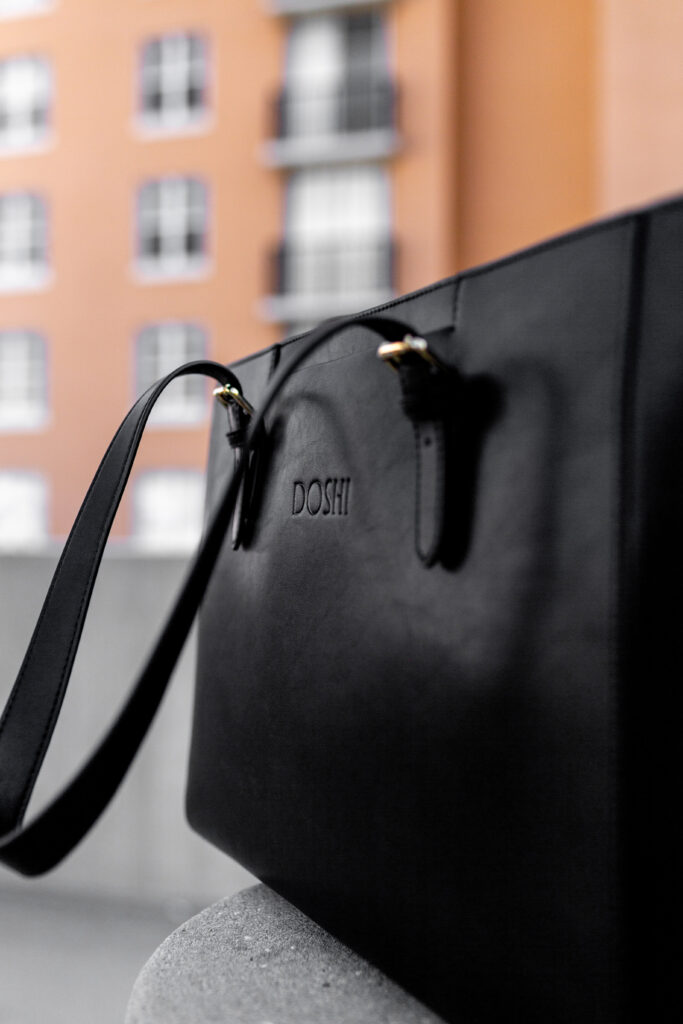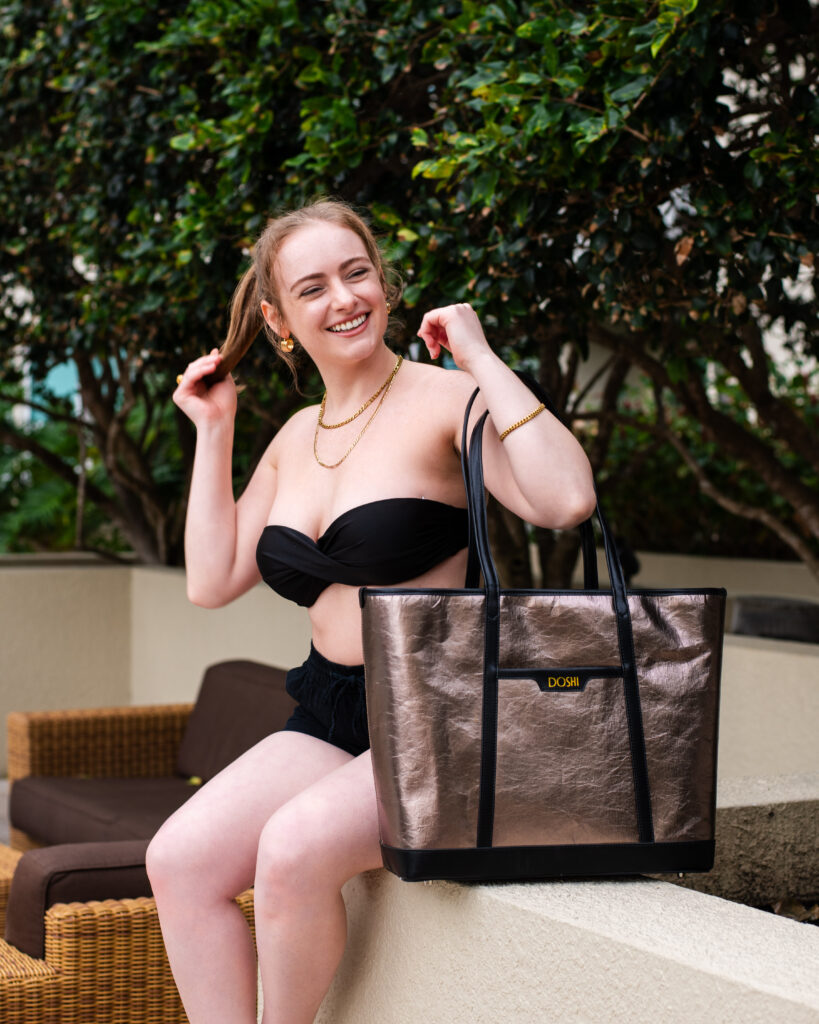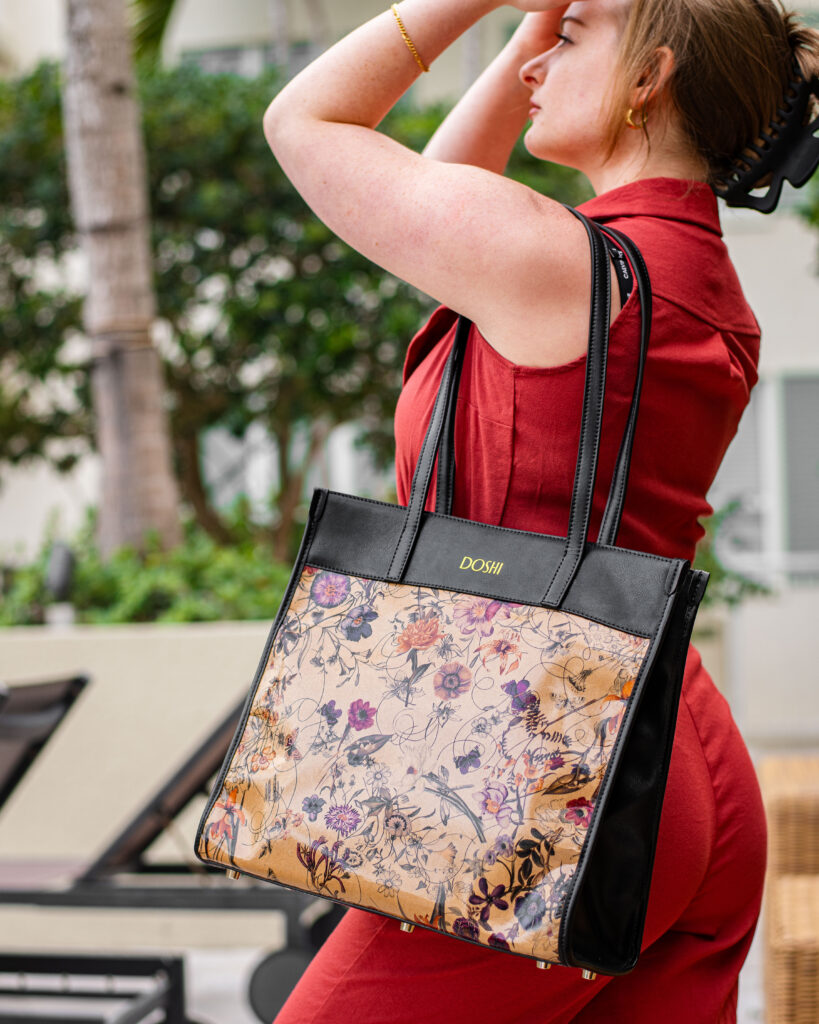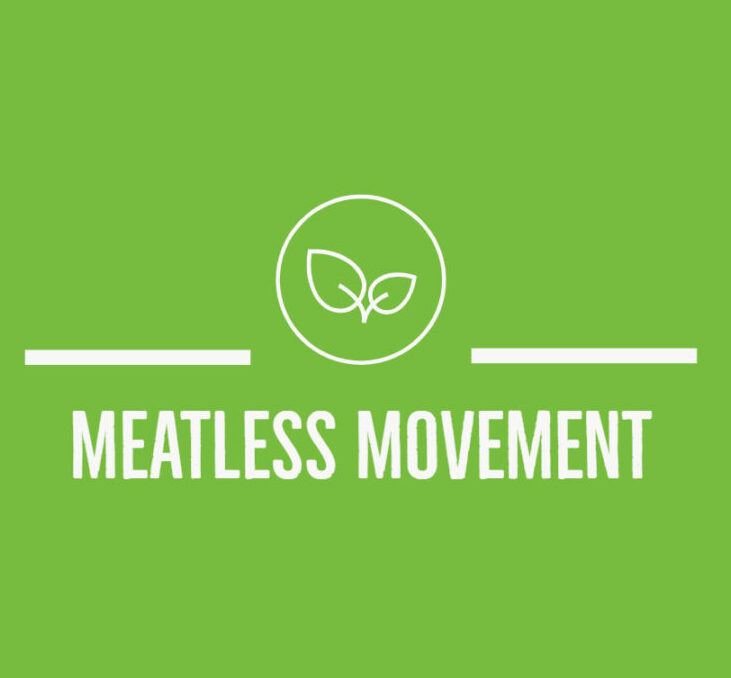Paras grew up in the sunny climes of southern California and dedicated 17 years to working for the City of Los Angeles before embarking on a mission close to his heart: providing high-quality, fashionable vegan bags and accessories to the world.
A lifelong advocate for animals, Paras has consistently supported pro-animal nonprofits and sanctuaries, embodying his vegetarian upbringing and commitment to veganism since 2012. The challenge of finding stylish and durable vegan accessories first struck him in 2001, igniting a persistent search that ultimately led him to create Doshi in 2017.
Since then, Paras has devoted himself to realizing his vision of elegant, sustainable, and cruelty-free fashion.
Tell us more about yourself, please
Sustainable & Cruelty Free 🌿✨️
I grew up in sunny southern California and worked for the City of Los Angeles for 17 years before leaving to pursue my mission to provide quality, fashionable, vegan bags and accessories to the world. Over the years, I have donated and raised money for pro-animal nonprofits and animal sanctuaries. I grew up vegetarian and became vegan in 2012.
I first confronted the issue of finding vegan accessories in 2001 when I started my first job. The difficulty of finding classy, fashionable, and durable vegan accessories persisted over the years, no matter how many brands I tried.
Eventually, I decided to venture out and start Doshi to address this need. Doshi launched in 2017, and I have been working on delivering the idea of classy, fashionable, and quality non-leather goods ever since.
I hold a B.S. in Finance from California Polytechnic University, Pomona, and an MBA from the University of Southern California.

Vegan leather belts.
Because it feels good.
Because it looks good.
Doshi was founded to provide smart, fashionable, and quality vegan bags and accessories to people who have ethical, religious or environmental beliefs that lead them to seek vegan products. Our goal is to meet the needs of smart, socially and environmentally conscious professionals, jet-setters and fashionistas. Our product offerings include non-leather (vegan leather) handbags, briefcases, backpacks, belts, and wallets.
We are based in southern California but we’d like to think that we’re not just part of just one city, state, or even country. We want to be a part of lives in every place that people share our ideals for a better world. We believe that’s everywhere.

What Makes Us Different? Intention
Changing the world, one choice at a time! 💚💼 Did you know that embracing veganism goes beyond what you put on your plate? It also sparks a positive impact on sustainability and animal welfare
Unlike an accidentally vegan product that was made as cheaper alternative to a leather product, Doshi seeks to set the standard in luxury vegan fashion. Setting the standard includes a heavy focus on design, materials, hardware, and craftsmanship.
Our founder, Paras, oversees the design of products, picks out the materials, and directly works with factories to make intentionally vegan goods for vegan and vegan friendly customers.

Intentionally Vegan Design: We study trends, consult designers, and keep an awareness of the marketplace to make sure that our products keep you up to date.
Intentionally Vegan Materials: When Paras realized that ordinary PU was an inferior material, he set out to find the best vegan materials. Most companies talk about using “high quality PU” for their vegan leather. The phrase doesn’t mean too much. Paras spent years researching where the best vegan materials come from. Doshi does not use ordinary PU in any of its products.
Intentionally Vegan Manufacturing: Vegan products don’t stop at materials. Our partner factories know that our products need to be vegan from top to bottom. All glues, thread, structural materials, interlining, and hardware are 100% vegan. No animal products are used in our goods whatsoever.
Intentionally Connected: We support several vegan organizations from those pushing forward animals rights to farm sanctuaries taking care of our non human friends.
Why not leather? Isn’t it just a by product?
Studies show that the source of a great deal of the world’s pollution comes from livestock. It’s not the animals’ fault. Humans just breed too many of them. The lifecycle of a cow involves great deals of resource consumption and waste production. From our reading, studies and back of the envelope calculations, we believe that the carbon footprint needed to produce a bag or backpack from synthetic materials is vastly smaller than what is needed to produce the same bag using an equivalent amount of leather. Further, much of the leather found in mass produced goods is treated with petroleum based compounds at every step, from tanning to it’s final finish.
Product
Vegan Work Tote: High quality construction and high quality microfiber leather exterior. Recycled plastic bottle (RPET) lining.
In creating this floral tote, we wanted to create a standard for totes and build upon this product for years to come. This body of this tote mainly uses kraft paper with microfiber applied strategically for both aesthetic, reinforcement, and functional purposes. With this floral design we continue to celebrate our connection to nature.This is a large tote intended to help you carry all your essentials in a durable and versatile package. Kraft Paper is largely biodegradable and it continues our mission to push forward vegan materials that are as much as possible plant based, sustainable, and biodegradable. We view Kraft Paper as a better material than cork.
We made our medium zip around wallet out of kraft paper to further our mission to make sustainable and vegan goods. Durable, scratch-resistant material YKK Excella zippers are the top-of-the-line zipper from YKK, the largest zipper company in the world. Excella zippers feature extra wide teeth to convey a level of luxury found in a few other products. RFID protection PETA-Approved Vegan Wallet. No leather or animal products are used.
Did you know that the pineapple leaves that are used to create the material for our this bag, used to be burnt as waste? And now they are being repurposed in gorgeous accessories! It’s like magic 🥰
Sustainable Vegan Men’s Wallet, made from Pinatex! Pineapple leather is a biodegradable sustainable material, yet ultra-durable. This gorgeous material is not only eco-friendly but also remarkably durable and just as beautiful as traditional leather. Normally, nearly half of every pineapple you eat would end up in the trash. But now, companies across the globe are turning the inedible parts of the fruit into textiles, so companies like us can turn them into awesome vegan accessories!
Interesting brand stories (e.g. any special reason for the name of business, history, etc)
Not all synthetic leather is made equally. Microfiber PU is the closest material to what we might term true “vegan leather.”
In the manufacturing world, most companies use alternatives to leather to make lower grade products. These alternatives often lack durability on many levels – peeling, crocking and tensile strength to name a few. These lower grade products have hardware and construction methods that match the quality of the material.
Manufacturing is a cost driven industry and so to varying degrees, you get what you pay for. We never wanted to put cheap products into the market and so most of our products will use forms of microfiber leather or microfiber suede. We do not use polyester based polyurethane in any of our goods and never use PVC (polyvinyl chloride) as the main material (though it may be present if we ever use rubber like feet for a bag). So far, we have not used PVC either.
Microfiber leather and microfiber suede are the only true animal leather alternatives as they were intentionally made to mimic the hand feel of leather and often outperform leather in durability. Of course microfiber leather has several grades as well. We continuously look for materials that meet higher performance standards and almost always wind up purchasing the highest end vegan leathers from the most expensive material factories. We can’t help it. We love durable, beautiful materials and we want our customers to have the very best.
WHAT IS VEGAN LEATHER?
The craftsmanship we put into every Doshi product, including our vegan leather belts, is second to none. Every belt is handmade by a skilled artisan – they’re truly one-of-a-kind pieces.
Vegan leather is any material that can be used as an animal leather alternative but which has no animal content. Vegan leather was historically made using synthetic materials like vinyl and polyurethane (PU) but can also be made from organic materials like pineapple fibers. This leads to a number of questions as to what material is good for the animals, environment, and durability.
Most people are familiar with PU leather. The interesting thing about PU is that it’s actually mostly polyester or nylon with a thin coating of polyurethane on top so PU is mostly, not PU. Is PU leather vegan? Yes, but as we’ll discuss in this article, it’s not something that you want.
What about all of these vegan leathers that are made from plants? Most of them are like the standard PU discussed above in that they aren’t really plant based. Most companies have just found a way to attach a very thin layer of plant based material from the bark of cork trees, apples, or cactus onto a poly-cotton backing and call this vegan leather. It’s stretching the truth… a lot. At the moment the closest that we have to plant based, non-synthetic vegan leathers are Pinatex (non woven material made from pineapple bio waste), Mycelium (Mushroom Leather), and Kraft Paper.
*Note the makers of Pinatex prefer for their material not to be labeled as a vegan leather.
We often get asked: If you’re not using animal leather than what is it?
We most often get the question – if it isn’t (animal) leather than what is it made of? Among the different materials available to replace leather, we use Microfiber PU as our vegan leather. Of course there’s no animal content in the material but we preserve the moniker “leather” to give people an idea of what the material will feel like. Microfiber is the key term as Microfiber based vegan leather is the highest grade of synthetic leather commercially available in the market today.
Microfiber vegan leather consists of two parts.
- Microfiber base – The microfiber base is the most important part of the material. The microfiber is unlike clothing in that it is non-woven. Instead of being woven like cloth, the microfibers are made to coagulate in three dimensions so that they mimic the structure of skin. The resulting material is soft, supple, breathable, and much more durable than the any alternative that we have tested. These qualities are the key difference between the material that we use and ordinary PU discussed above. Ordinary PU has a woven base material which stretches and does not hold the top coat of polyurethane coat well. In the long run, bags made of ordinary PU crack and peel.
- Polyurethane top coat – The polyurethane on top helps create different looks, textures, and feels. In our materials, the adhesion to the microfiber base layer is extremely strong.
It looks like leather, it feels like leather, it’s just as durable as leather, but it is 100% cruelty-free & sustainable!
Who would choose animal skin over cruelty-free? 🤷
The resulting material is generally extremely durable and often outperforms leather in a variety of tests. Microfiber suede generally does not require any polyurethane at all. When considering the manufacturing process for animal leather, vegan leather is much more sustainable – especially when it comes from factories that minimize use of water and solvents. Factories making microfiber vegan leather often understand that this premium material is being chosen intentionally by high end brands. They are the most motivated amongst the material suppliers to offer quality products that are often also eco-friendly. Some factories are starting to offer materials that feature a recycled base material.

The vegan leather that looks like animal leather (Microfiber) actually performs and lasts like high quality animal leather. Ordinary PU (top left) is a cheap substitute that has been used for decades. It is unfortunate that companies using this cheap material are simply changing their marketing and passing off a cheap substitute as vegan leather to capitalize on the vegan market. We’re vegans committed to bring you the best, not fooling our community.
Doshi Vegan Bags & Accessories
👜 Luxury Vegan Leather Accessories
🌱 Materials That Live in Harmony with Nature
all images courtesy of Doshi Vegan Bags & Accessories
